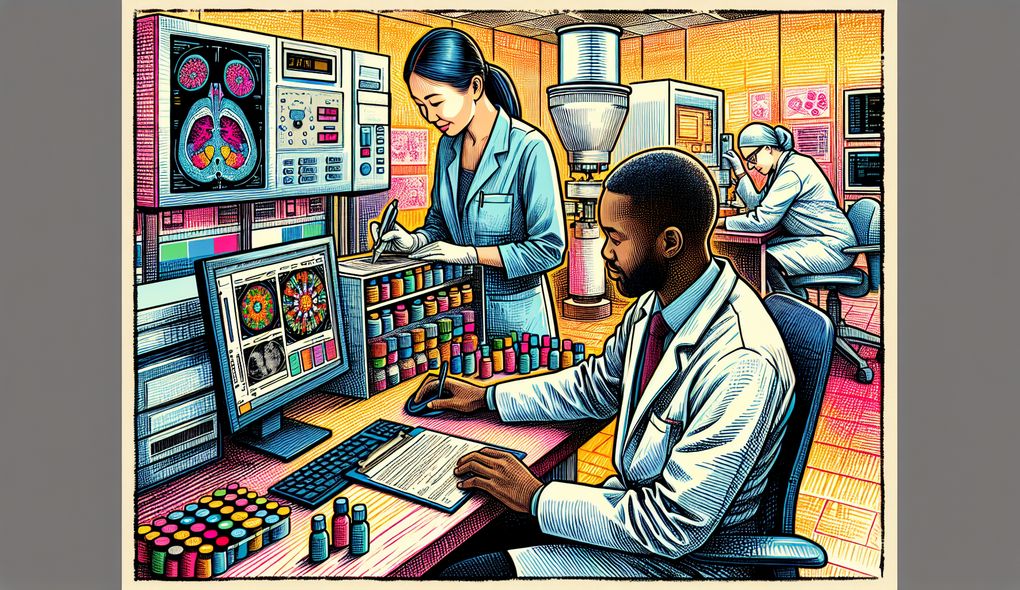What do you think are the key ethical considerations in nuclear medicine?
SENIOR LEVEL

Sample answer to the question:
One key ethical consideration in nuclear medicine is the safe handling and disposal of radioactive materials. As a Nuclear Medicine Physician, it is crucial to prioritize patient and staff safety by ensuring that radiation exposure is minimized and controlled. In addition, maintaining patient confidentiality and privacy is another important ethical consideration. As healthcare professionals, we must respect patient autonomy and protect their sensitive medical information. Lastly, transparency and informed consent are vital ethical considerations. It is important to fully educate patients about the risks and benefits of nuclear medicine procedures and obtain their informed consent before proceeding.
Here is a more solid answer:
Ethical considerations in nuclear medicine are multifaceted. Firstly, ensuring the safety of patients, staff, and the general public is paramount. This includes proper handling, storage, and disposal of radioactive materials to prevent unnecessary exposure and environmental contamination. Secondly, maintaining patient confidentiality and privacy is crucial. As a Nuclear Medicine Physician, I understand the importance of protecting sensitive medical information and adhering to HIPAA regulations. This involves secure electronic transmission of patient data and obtaining informed consent for sharing medical records and images with other healthcare professionals. Lastly, transparency and informed consent are key ethical principles. It is essential to fully inform patients about the purpose, risks, benefits, and alternatives of nuclear medicine procedures, allowing them to make autonomous decisions about their healthcare. Furthermore, as a leader in a clinical setting, I would actively promote education and awareness regarding ethical considerations in nuclear medicine among my team and ensure adherence to ethical guidelines and best practices.
Why is this a more solid answer?
The solid answer provides a more comprehensive understanding of the key ethical considerations in nuclear medicine. It discusses the importance of safety, confidentiality, privacy, transparency, and informed consent in detail. It also emphasizes the candidate's capability to lead and educate others in a clinical setting, aligning with the job requirements. However, it can still be improved by providing specific examples or experiences related to ethical considerations in nuclear medicine.
An example of a exceptional answer:
In nuclear medicine, ethical considerations play a critical role in guiding everyday practice. One key consideration is radiation safety and quality assurance. I would prioritize rigorous adherence to national and international guidelines to ensure the safe use of radiopharmaceuticals, proper disposal of radioactive waste, and regular equipment calibration and testing. Another important aspect is patient-centric care, which involves respect for autonomy and informed decision-making. I would engage in thorough discussions with patients, explaining the risks and benefits of procedures, alternative options, and obtaining informed consent. Confidentiality and privacy are of utmost importance, and I would strictly adhere to HIPAA regulations, securing electronic systems, and implementing strict data access protocols. Additionally, as a leader, I would foster an environment of continuous learning, encouraging discussions on ethical dilemmas and promoting research on ethical practices in nuclear medicine. By actively engaging in these considerations, we can ensure the highest level of patient care and uphold the ethical standards of the profession.
Why is this an exceptional answer?
The exceptional answer demonstrates a deep understanding of the key ethical considerations in nuclear medicine and provides a comprehensive approach to addressing them. It highlights the candidate's commitment to radiation safety, patient-centric care, confidentiality, and privacy. It also showcases the candidate's leadership qualities by promoting continuous learning and research on ethical practices. The answer goes above and beyond the job requirements, demonstrating a strong commitment to ethical principles in nuclear medicine.
How to prepare for this question:
- Familiarize yourself with national and international guidelines on radiation safety and quality assurance in nuclear medicine.
- Read up on HIPAA regulations and understand the importance of patient confidentiality and privacy.
- Reflect on ethical dilemmas you have encountered in your past work experience and think about how you navigated them.
- Stay updated on the latest advancements and research in nuclear medicine ethics.
- Prepare examples that demonstrate your ability to lead and educate others in a clinical setting on ethical considerations.
What are interviewers evaluating with this question?
- Knowledge of radiation safety and quality assurance
- High level of proficiency in using nuclear medicine equipment and software
- Capability to lead and educate others in a clinical setting

